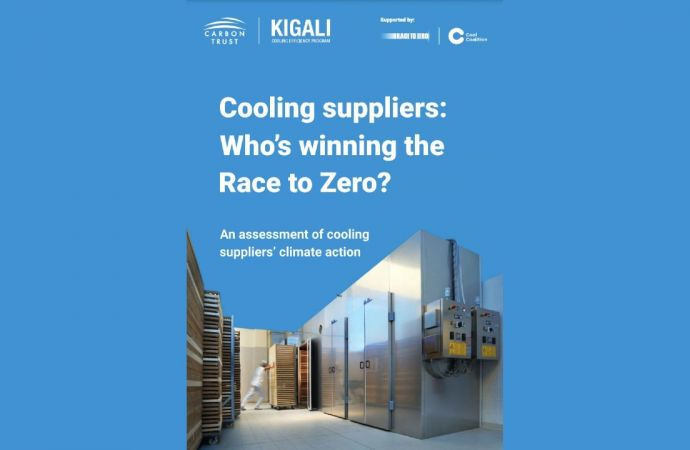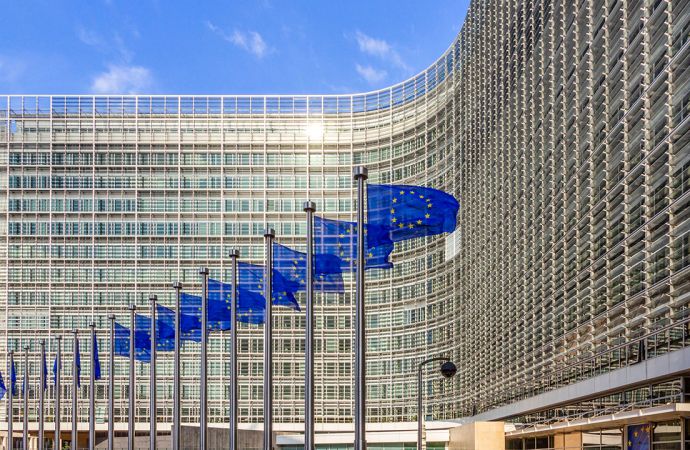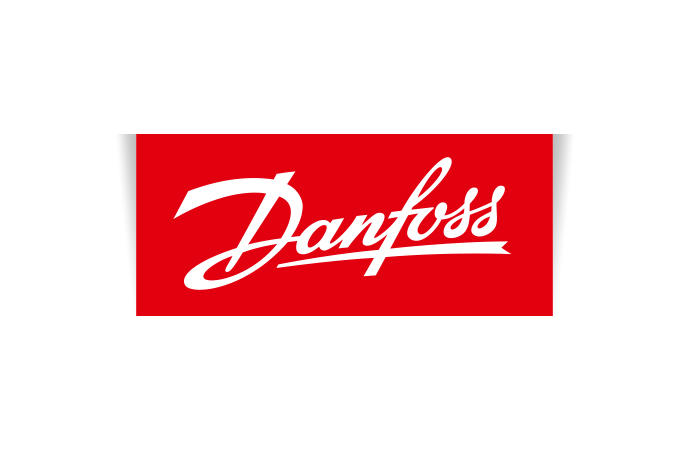The Danish Environmental Protection Agency has published a new report, “Low GWP Alternatives to HFCs in Refrigeration”, compiling latest results regarding the development of alternative HFC free refrigeration technology. Accompanied by the leaflet “Going Natural – the Danish Road to natural refrigerants”, the document aims to provide an objective update on the different technology options available.

The new report describes in detail the Danish initiatives that have helped reduce the emission of potent greenhouse gases, and an overview of the regulation that spurred the change. Key to the Danish success in rapidly introducing natural refrigerant HAVC&R equipment following the introduction of HFC taxes in Denmark was the fruitful co-operation between industry, science and government.
Availability of HFC-free technology
Since 1st of January 2007 a total ban on the use of HFC refrigerants in Denmark in new systems with charges exceeding 10 kg has been in force. In addition to the ban a tax amounting to DKK 195 (app. 26 Euro) per kg is imposed on the most frequently used F-gas refrigerant (HFC-134a). Accompanying this regulation the Danish EPA established the “HFC free Centre” to provide free advice and assistance on what kind of refrigeration system to choose (up to 5 hours of engineering consultancy).
The introduction of the Danish f-gas measures has resulted in the development of a plethora of natural refrigerant solutions. An overview of some of these technologies and the companies involved can be found below:
EU executive body decided in June 2012 that Denmark may continue f-gas bans
Following a request by Denmark in February 2012, the European Commission has issued a decision allowing the country to maintain more stringent national legislation than the EU F-Gas Regulation, authorising a continuation of the national ban on new products containing certain f-gases. The national provisions “take into account the existence and technical and economic availability of the alternatives to the banned applications in Denmark”. The decision extends indefinitely a previous authorisation by the European Commission allowing Denmark to maintain national provisions on certain fluorinated gases (f-gases) that would have otherwise expired at the end of 2012.
Availability of HFC-free technology
Since 1st of January 2007 a total ban on the use of HFC refrigerants in Denmark in new systems with charges exceeding 10 kg has been in force. In addition to the ban a tax amounting to DKK 195 (app. 26 Euro) per kg is imposed on the most frequently used F-gas refrigerant (HFC-134a). Accompanying this regulation the Danish EPA established the “HFC free Centre” to provide free advice and assistance on what kind of refrigeration system to choose (up to 5 hours of engineering consultancy).
The introduction of the Danish f-gas measures has resulted in the development of a plethora of natural refrigerant solutions. An overview of some of these technologies and the companies involved can be found below:
- AHT: The Austrian company produces R290 plug-in cabinets for supmarket refrigeration;
- Advansor: the pioneering company produces remote refrigeration packs for supermarkets and is now the world’s biggest manufacturer of transcritical CO2 refrigeration systems. Advansor now makes 8 supermarket refrigeration systems a week. By the end of 2011, the factory in Aarhus had built about 300 supermarket systems;
- Carrier: formerly known as Birton, the company builds CO2 transcritical CO2 systems for supermarkets;
- Danfoss: the world-leading supplier of components for the cold chain has developed components for a wide range of refrigerants, including HFCs, ammonia, CO2 and hydrocarbons. Danfoss supports a “phase-down” scheme for F-gases” according to Torben Funder-Kristensen, head of Public Industry Affairs at Danfoss;
- Gram Commercial: Since 2002, Gram Commercial in Denmark has marketed appliances with R290, and this type is now standard for the company's products in Denmark and other European countries;
- Johnson Controls International: Formerly known as Sabroe, Johnson Controls International produces about 200 chillers every year at the site in Denmark. The chillers are placed all over the world with cooling capacities of between 300 kW to 6.5 MW. Moreover, together with Danish company Bundgaard Køleteknik they have started the production of hydrocarbon chillers in the medium to larger range (50 - 400 kW). The two competing companies make about 150 units per year, and most of the units are installed in Denmark;
- Knudsen Køling A/S: the company builds as well as installs refrigeration systems Danish supermarkets;
- Vestfrost Solutions: the Danish company has produced refrigerators and freezers for professional use for soft drinks, beer, wine, pharmaceuticals, blood and vaccines, and has offered coolers and freezers with hydrocarbon refrigerants since 1994 to the domestic market and since 2000 for commercial use. The company also introduced the first SolarChill vaccine cooler.
EU executive body decided in June 2012 that Denmark may continue f-gas bans
Following a request by Denmark in February 2012, the European Commission has issued a decision allowing the country to maintain more stringent national legislation than the EU F-Gas Regulation, authorising a continuation of the national ban on new products containing certain f-gases. The national provisions “take into account the existence and technical and economic availability of the alternatives to the banned applications in Denmark”. The decision extends indefinitely a previous authorisation by the European Commission allowing Denmark to maintain national provisions on certain fluorinated gases (f-gases) that would have otherwise expired at the end of 2012.
MORE INFORMATION
Related stories






